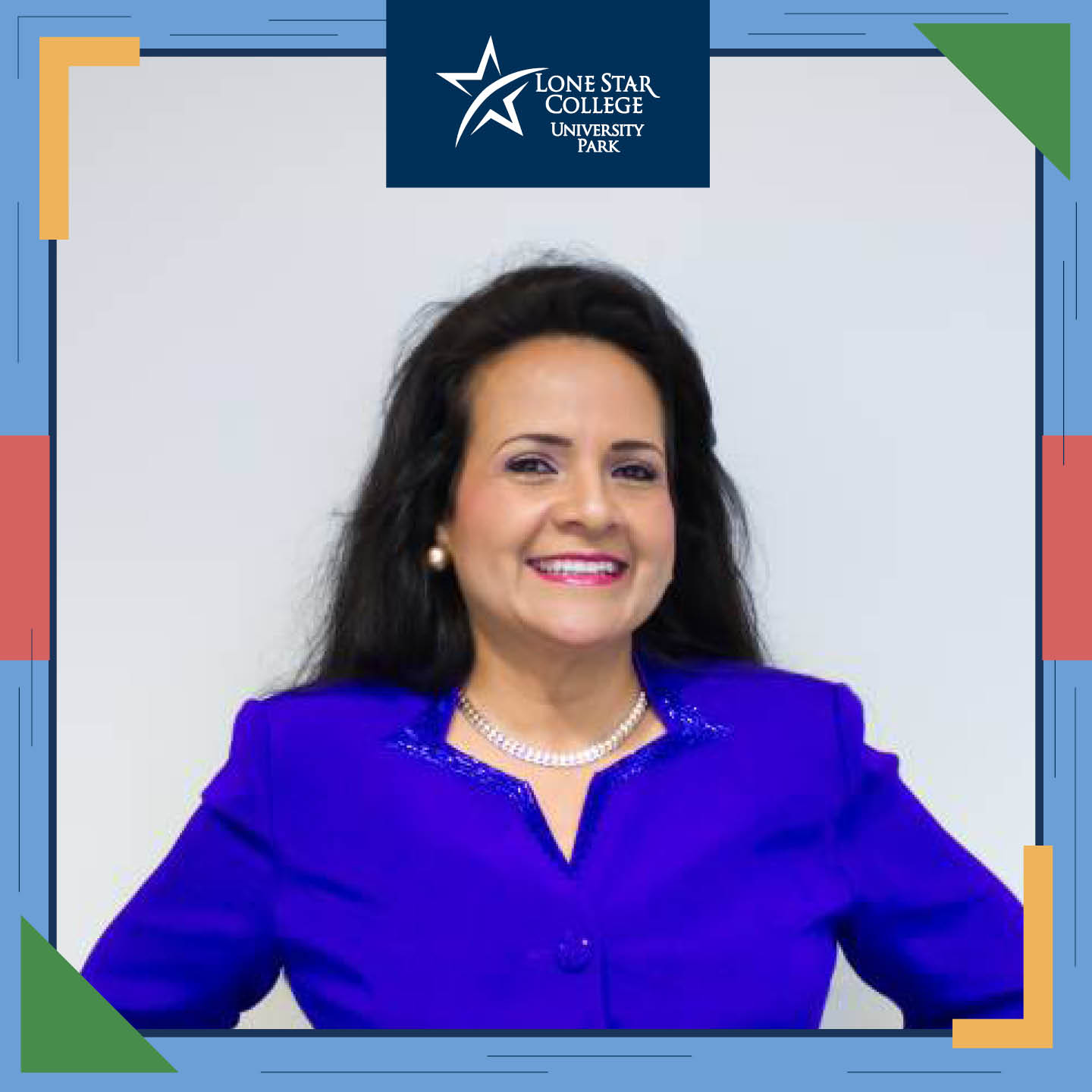 Sonia was the first in her family to graduate from college – after emigrating from Colombia earlier in life. Now, she is the President & CEO of a global, full-spectrum technology consulting firm based in Houston. She enthusiastically supports Lone Star College-University Park and serves on the LSC-University Park Community Advisory Council.
Sonia was the first in her family to graduate from college – after emigrating from Colombia earlier in life. Now, she is the President & CEO of a global, full-spectrum technology consulting firm based in Houston. She enthusiastically supports Lone Star College-University Park and serves on the LSC-University Park Community Advisory Council.
Find out more about Sonia and what Hispanic Heritage Month means to her!
What does National Hispanic Heritage month mean to you?
It means a lot to me because I am a Hispanic immigrant and a Naturalized Citizen of the United States This celebration helps us celebrate our Hispanic heritage, stories, cultures, customs and immigrant contributions to America and its great citizens.
Why is it important that we celebrate Hispanic culture?
I believe we Hispanics are an intricate and significant part of the American culture. We are the largest ethnic minority in the U.S., and we wield a lot of influence. Experts project the Hispanic GDP to account for 24.4% of total U.S. GDP by the end of 2020. U.S. Hispanics, together in the USA, represent the 5th biggest economy of the world. A large percentage of small- to medium-size Hispanic entrepreneurs have sustained our economy since the U.S. economic meltdown and we continue to be relevant in this process. Hispanics generated $2.3 trillion in gross domestic product in 2019. In other words, we are a significant and hard-working force in America!
Describe the importance of pursuing education as you were growing up?
I come from very humble beginnings. I am the first college graduate in my family. My father abandoned our home when I was 18 months old and my mother had a 3rd grade education. I was born during the onset of the Colombian Narco-Guerrilla war in a very violent place. Education was the “privilege” of those with economic power. In an old chauvinistic society, a woman had little or no opportunity to emerge from poverty since she had less chances to learn and educate herself.
I witnessed, first hand, my mother’s struggles due to her lack of education. I didn’t like to be poor and disadvantaged. I didn’t want to see my mother grow old in poverty nor my children grow up in the same miserable state I was living in. Very early in life, I understood that knowledge and education were the real equalizers. Hence, I promised myself to change my future by fiercely learning and pursuing my education. Since I had to dropout in 9th grade to help my mother support our home, most of my college education was done at night and during weekends while holding a full-time job.
What challenges have you overcome as a Hispanic?
There are so many, I cannot mention all of them!
When I came to America I had to re-educate myself. First of all, I had to learn English, the language of the land. I had to adapt, accept and learn new and different American customs and traditions, laws and American values. That took me a while. But then I had to raise my expectations and learn to compete with the best! I was inspired by the generosity of so many Americans that extended their helping hands to me. From that I learned to be generous, charitable, and giving as they were to me.
How do you feel your association with LSC-University Park can help influence our Hispanic (and non-Hispanic) student population?
I tend to look at Hispanics students as struggling projects, as I was. The reasons vary, in my case it was lack of everything (money, parental support, government, educational programs, much corruption, etc.). We, Hispanics, are trained to support and eventually take charge of our previous generations (seniors, parents and grandparents), since our countries’ lack Social Security and retirement programs. So, “premature responsibility” often takes over our dreams and you let go of your personal and professional development objectives. But at the end, Hispanic or not, a student is a human being in development. He or she deserves a chance and an opportunity to shape or change his or her destiny. I work hard with many students across the USA helping them achieve their goal of education. I take pride and joy in sharing my story because it is a force for good.
“Be Proud of Your Past . . . Embrace the Future” is this year’s HHM theme. How does this theme relate to your life?
I am proud of my past and my Hispanic heritage. But if I was asked to re-live my life I would respectfully decline because it was painful. However, I treasure the challenges, the hills and valleys, the failures and success and all lessons learned. Those experiences built my character and my story would not be the same without them. It is true that my current life is, to a large extent, the result of my past actions and wise or poor choices and experiences. The great news, however, is that my future is still under development and is determined by how I act at the present moment and the choices I make today. In other words, your past does not have to define you or your future and certainly there is a lot you can do to be the captain of your own ship.
Join us on Thursday, Oct. 15, as we conclude Hispanic Heritage Month with an all-campus virtual celebration, which will include a video commemoration and panel discussion featuring Sonia Clayton and Dr. Felipe Hinojosa, director of undergraduate studies in the Department of History at Texas A&M University. Event log-in: http://bit.ly/UP-HHMCelebration. More details will be shared via email and on our social media pages!
